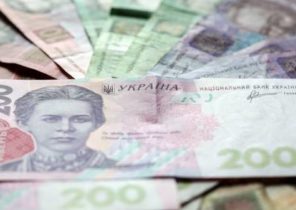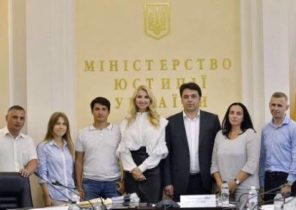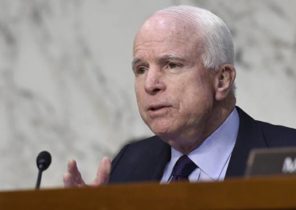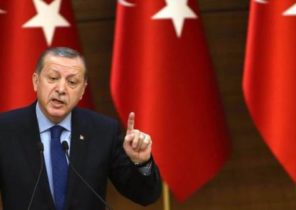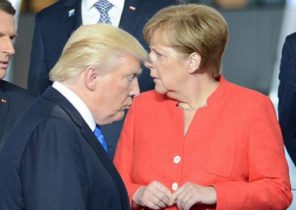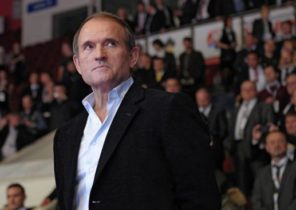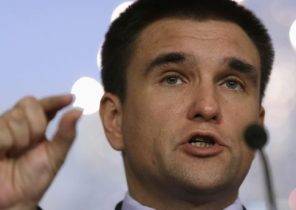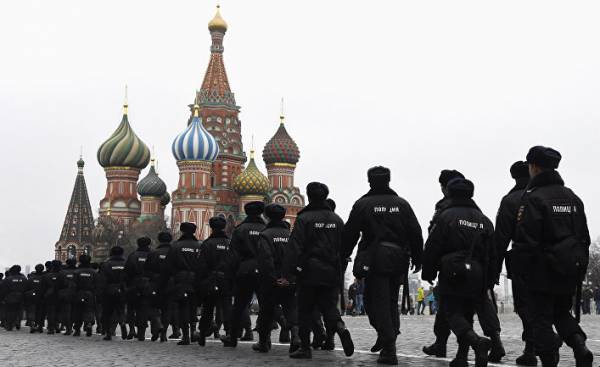
Today, a quarter century after the end of the cold war, the West and Russia are once again in conflict. This time (at least on one side) the subject of the differences more obviously connected not with the ideology, and geopolitical power.
The West strongly supports the democratic movement in the former Soviet Union, almost conceal his excitement about the various “color” revolutions, which replaced the longstanding dictators come more adaptive and effective leaders — though not all of them are staunch Democrats, for whom he claimed to be.
Too many of the former Soviet bloc countries remain under the control of authoritarian leaders, including some, like Russian President Vladimir Putin, who learned to maintain stronger visibility than their predecessors-the Communists.
They promote a system of “illiberal democracy”, not based on some universal historical theory, and pragmatism. These leaders claim that they are just more effective in achieving goals.
Undoubtedly, so when it comes to incitement of nationalist feeling and the suppression of dissent. But at the same time they are less effectively foster long-term economic growth. In Russia, once one of the two superpowers, the GDP is now about 40% of Germany’s GDP and just over 50% of French GDP. Expected at birth, life expectancy, Russia occupies 153rd place in the world, immediately after Honduras and Kazakhstan.
If you evaluate the income per capita, Russia ranks 73rd place (purchasing power parity) — being on a much lower level than the former Central and Eastern European satellites of the Soviet Union. Industrial country is not developed: the vast majority of its exports currently provided by natural resources. It is not to become a “normal” market economy, but rather a form of crony state capitalism.
Yes, Russia still has a lot of weight in some areas, such as nuclear weapons. And it retains a veto in the United Nations. As the recent hacking of the servers of the US Democratic party, Russia has cybernetic potential, allowing it to actively intervene in the elections in Western countries.
There is every reason to believe that such interference will continue. Given the close ties Donald trump dubious Russian individuals (which are themselves closely associated with Putin), Americans are deeply concerned about the potential influence of Russia in the US — that may become clearer in the result of the ongoing investigation.
When the iron curtain fell, many were laid on Russia and (more broadly) in the post-Soviet countries is much more hope. After 70 years of communism, the transition to a democratic market economy would be difficult. But given the obvious advantages of democratic market capitalism, compared with just a broken system, it was assumed that the economy will prosper and the citizens will demand greater rights to Express their opinion.
What went wrong? Who is to blame if the perpetrators are generally available? Was it possible to organize and conduct the post-Communist transformation of Russia better?
We will never be able to completely and unambiguously answer questions such as: history can not “scroll” again. But I believe that what we are now facing is partly the legacy of the incorrect common position of Washington, which influenced changes in Russia. The impact of this concept is reflected in the importance the reformers attached to the privatization, regardless of how it is held, when the pace was more important than the rest, including creating the institutional infrastructure required to make markets work.
15 years ago, when I wrote my book “Globalization: disturbing tendencies” (Globalization and its Discontents), I argued that this “shock-therapy” approach to economic reform, suffered a catastrophic failure. But the defenders of this doctrine, warned of the need for patience, believing that such conclusions can only be made with a long-term perspective.
Today, after more than 25 years after the beginning of the transition period, these preliminary results received confirmation, and found that those who claimed that the right to private property, once they appear, will be an occasion for the extensive requirements of the law, was wrong. Russia and many other transition economies lag behind advanced economies more than ever. GDP in some transition economies is below the level at which it was in these countries in the early transition period.
Many in Russia believe that the U.S. Treasury Department promoted a coherent policy of Washington to weaken their country. Because of corruption, deep-rooted in the command of Harvard University, selected for the “relief” of Russia in its transition period, as discussed in a detailed report published in 2006, a monthly business magazine Institutional Investor, this opinion has intensified.
I believe that the reasons were not so creepy and dark. The fact that erroneous ideas, even if to act with the best of intentions — is fraught with serious consequences. And opportunities for personal enrichment and the realization of selfish goals, which were granted to Russia were for some simply too great to abandon them. Of course, on the background of democratization in Russia it was necessary to take actions aimed to ensure General prosperity, and not to pursue policies that led to the creation of the oligarchy.
Therefore, the failure of the West must not relax its commitment to establishing democratic States that respects human rights and international law. The US is trying not to let the extremism of the administration of tramp — whether it’s immigration decree directed against Muslims, unscientific environmental policies or the threat to withdraw from international commitments in trade — has become the norm. But it is impossible to become the norm and violations of international law by other countries, such as Russia’s actions in Ukraine.
Joseph Stiglitz — Nobel laureate in Economics, Columbia University Professor, former Vice-President and chief economist of the world Bank. Former Chairman of the Council of economic advisers under US President bill Clinton.
